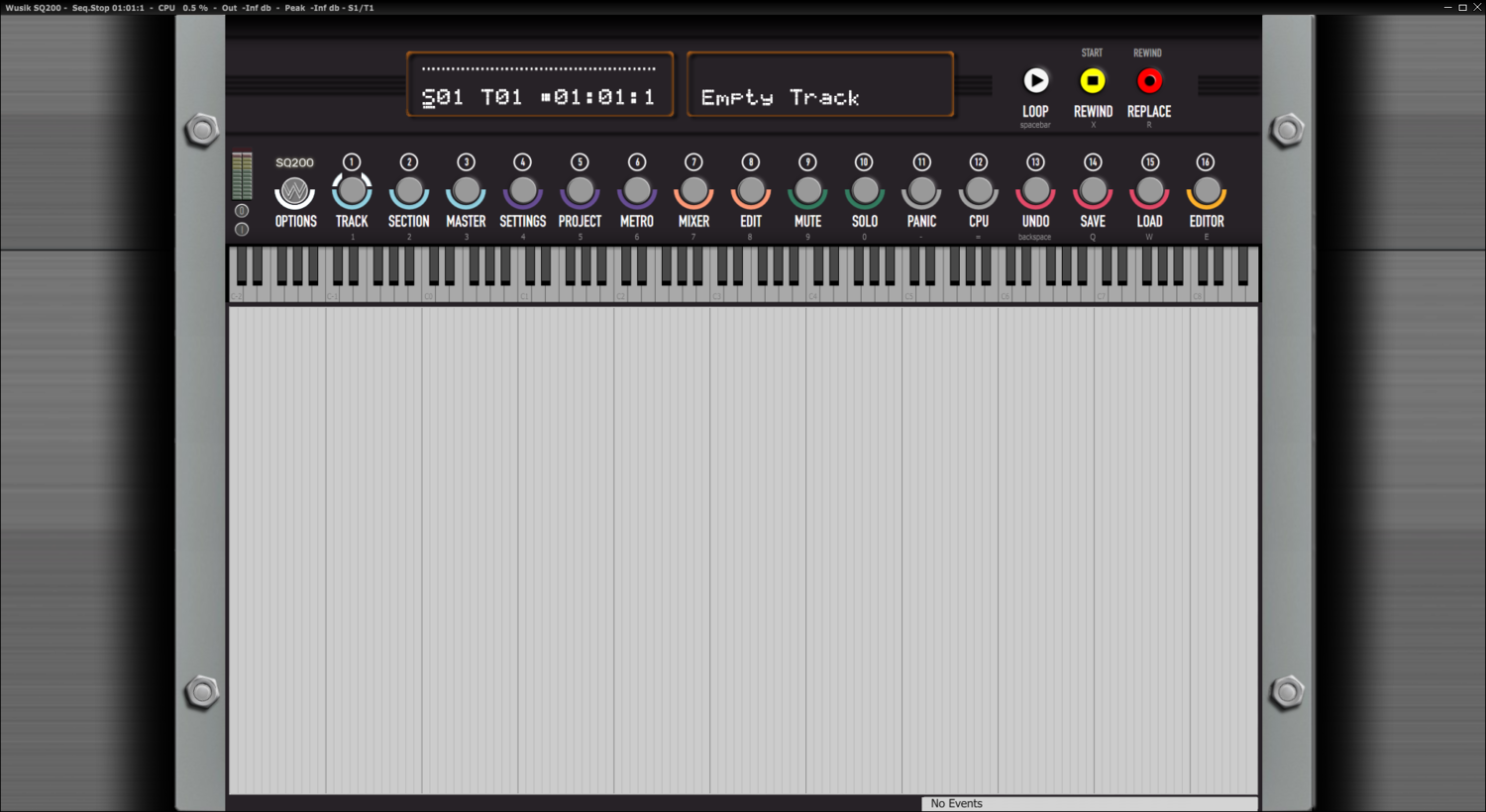top of page
Wusik SQ200
"Hardware" Sequencer in Software Format. Full keyboard arrows navigation, minimal mouse usage.
Complete Host / Sequencer (DAW) Application. Multi CPU-Core Compatible. ASIO and DirectX Support (Windows).
NEW: Anti Crash Protection (ACP), check the user's manual for details.
![]() Windows PC 64 bits native formats: Stand Alone App, VST2 and VST3.
Windows PC 64 bits native formats: Stand Alone App, VST2 and VST3.
Wusik SQ200 is a complete Digital Audio Workstation (DAW) that allows you to record sequences of notes and automations using MIDI and hosting VST/AU plugins. You can create complete projects or just use it to chain other plugins into your host of choice."
Why should you care about Wusik SQ200?
- It works both as a stand-alone application and VST2/VST3 plugin versions
- Allows you to setup live performances with ease
- Let you work on a different workflow, little mouse usage
- Very low on CPU resources
- Easy to use for Live Performance, including MIDI Processors such as Key Switching, Round Robin, Transpose and Sticky Keys
What are the main features of Wusik SQ200?
- Full 960 PPQ sequencer with up to 99 tracks and 99 sections.
- VST2/VST3 plugin hosting, with internal 32 to 64 bits bridge (VST Windows only).
- Audio Track Streaming and WAV Acid Loop files support with time-streatching.
- Included Compressor with Side-Chaining support, done in a very easy to use way.
- Open-Source Hardware Remote Controller support, the Wusik SQ200 HD.
- Multi-Core Engine.
- Midi Learn for Plugin's parameters.
- Playback/Record Metronome with custom sounds support.
- Live Mode where you can load Songs using a MIDI Keyboard.
- MIDI Processors per track, with things like Crossfade, Delay, Split, Round Robin, Key Switch and more.
Other features:
- Track Mute/Solo.
- Each plugin (instrument) has: Volume, Pan, Limiter, Low-Pass and High-Pass EQs, plus 6 x Parametric EQs, 8 insert effects and a compressor with side-chaining support built-in.
- Note events has support for quantizing and tripplets.
- The event's editor allows you to edit all events in a single screen. There's also a Piano View mode that allows you to use the mouse to change notes.
- Tracks can be looped. This works like this: if you have 4 tracks, each with 16 measures, and an extra track (5 total) with only 4 measures, when playing the section it will loop the 5th track until the section ends. You can enable/disable this option per track.
- Sections are played one after the other, to compose a song. You can set a section to repeat #N times. You also have the option to play and repeat a single section and change sections using the section selector.
- All plugin's parameters can be automated, with the option to enable automation write/read per instrument and master.
List of All MIDI Processors
- Key and Velocity Zone Split - so you can assign different sections of your MIDI Keyboard for each track.
- Key Switching - allows you to switch from one instrument to another one using a set of keys you define. It can also work in Hold mode, so it will switch to that instrument as long as you keep holding the note.
- Round Robin - you set multiple instruments and each note will go to a different one, in a circular way.
- Transpose - pitch up or down all input notes, single notes or whole octaves.
- Sticky Keys - will hold keys and works in two ways: holds all keys until you press a defined key; holds keys until you press those again to release
- Chords & Strum - record chords to be played with single keys. Optional strumming velocity and progression. Plus, looping of chords when using the strum option.
- Crossfader - allows you to crossfade from one track to another, with support to up to 99 tracks sequentially.
- Note Delay - adds a delay to all notes, with the option to transpose the delayed note and echo the original note. Plus, feedback on the delay, creating sequential delays.
Display prices in:
USD
bottom of page

